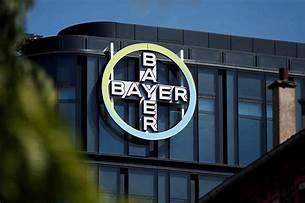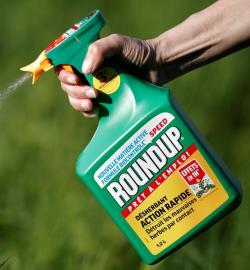 Previously news media have reported on the possible unraveling of the proposed $11 billion settlement between Bayer AG and plaintiffs claiming that glyphosate in Roundup was responsible for non-Hodgkin lymphoma. Bayer AG the acquirer of Monsanto, apparently agreed to settle the bulk of 125,000 cases in a court-sanctioned settlement. A proportion of the class are holdouts who wish to pursue jury trials based on the adverse verdicts against Bayer in three cases in California involving bellwether plaintiffs. Although attorneys for Bayer characterized the delay in settlement as a "speed bump and a slight hiccup", there are concerns that a settlement involving at least 30,000 plaintiffs may evaporate.
Previously news media have reported on the possible unraveling of the proposed $11 billion settlement between Bayer AG and plaintiffs claiming that glyphosate in Roundup was responsible for non-Hodgkin lymphoma. Bayer AG the acquirer of Monsanto, apparently agreed to settle the bulk of 125,000 cases in a court-sanctioned settlement. A proportion of the class are holdouts who wish to pursue jury trials based on the adverse verdicts against Bayer in three cases in California involving bellwether plaintiffs. Although attorneys for Bayer characterized the delay in settlement as a "speed bump and a slight hiccup", there are concerns that a settlement involving at least 30,000 plaintiffs may evaporate.
 An important part of this settlement is the offer to create a trust fund for future claimants that will inevitably emerge. Parallels between the alleged carcinogenesis of glyphosate have close similarities to the extended litigation over asbestos. This group of industrial products was clearly shown to be responsible for mesothelioma and pulmonary asbestosis from the mid 1970s onwards. Due to the protracted latent period with asbestos-related pathology the trust fund for future cases was an important component of the ultimate settlement requiring federal funding. A similar situation may pertain with glyphosate. The presiding U.S. District Judge, Vince Chhabria has indicated that he is still willing to try additional cases and is unlikely to approve the part of the settlement dealing with future claims.
An important part of this settlement is the offer to create a trust fund for future claimants that will inevitably emerge. Parallels between the alleged carcinogenesis of glyphosate have close similarities to the extended litigation over asbestos. This group of industrial products was clearly shown to be responsible for mesothelioma and pulmonary asbestosis from the mid 1970s onwards. Due to the protracted latent period with asbestos-related pathology the trust fund for future cases was an important component of the ultimate settlement requiring federal funding. A similar situation may pertain with glyphosate. The presiding U.S. District Judge, Vince Chhabria has indicated that he is still willing to try additional cases and is unlikely to approve the part of the settlement dealing with future claims.
Between glyphosate and dicamba and it is evident that the $163 billion purchase of Monsanto in 2018 was the worst deal of the century, impacting Bayer AG shareholders and calling into question the judgment of the CEO Werner Baumann.